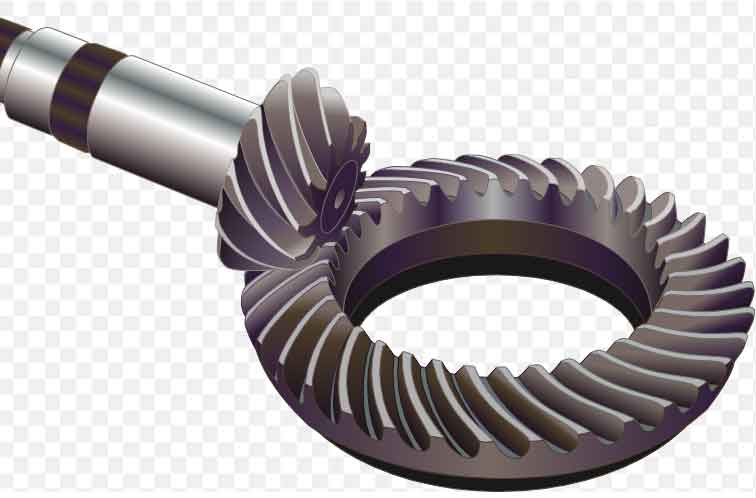
Efficiency and noise reduction are important factors to consider when optimizing spiral bevel gear systems. Here are some strategies to achieve these goals:
- Gear Design Optimization: Careful design considerations can improve the efficiency and noise characteristics of spiral bevel gears. Parameters such as tooth geometry, tooth contact pattern, and gear ratios should be optimized to minimize energy losses and maximize power transmission efficiency.
- Precision Manufacturing: Accurate and precise manufacturing processes are crucial for achieving optimal gear performance. High-quality gear blanks, advanced machining techniques, and tight tolerances ensure proper gear tooth profiles, resulting in improved efficiency and reduced noise generation.
- Surface Finish and Coatings: Smoother gear surfaces reduce friction and improve gear efficiency. Polishing or grinding the gear teeth and applying suitable coatings, such as low-friction coatings or anti-wear coatings, can enhance surface finish and minimize power losses.
- Lubrication: Proper lubrication is essential for reducing friction, wear, and heat generation in gear systems. High-quality lubricants with appropriate viscosity and additives should be used to ensure optimal lubrication film thickness and to minimize energy losses due to friction.
- Alignment and Gear Meshing: Accurate alignment of gear components and precise gear meshing are critical for reducing noise and optimizing efficiency. Proper installation, alignment, and adjustment of gear sets help achieve smooth and uniform contact between gear teeth, minimizing noise and maximizing power transmission efficiency.
- Vibration Damping: The use of vibration-damping techniques, such as employing vibration-absorbing materials or implementing effective damping mechanisms within the gear system, can help reduce noise and vibrations caused by gear meshing.
- Isolation and Enclosure: Isolating the gear system from external vibrations and noise sources, as well as enclosing the gear assembly within suitable housings or enclosures, can contribute to noise reduction and improved overall system efficiency.
- Gear Material Selection: Choosing the right materials for spiral bevel gears is crucial for optimizing efficiency and noise reduction. Materials with high strength, hardness, and fatigue resistance can minimize gear wear, reduce power losses, and enhance overall gear system performance.
- Gear Tooth Modifications: Applying tooth modifications, such as profile modifications or crowning, can optimize gear contact patterns, reduce noise, and improve load distribution across the tooth surfaces.
- Maintenance and Inspections: Regular maintenance and inspections are essential for identifying and addressing any issues that may impact efficiency and noise levels in the gear system. This includes monitoring lubrication conditions, performing gear tooth wear checks, and addressing any misalignments or abnormalities promptly.
By implementing these optimization strategies, it is possible to achieve higher gear system efficiency and reduce noise levels in spiral bevel gear applications, resulting in improved overall performance and reliability.
